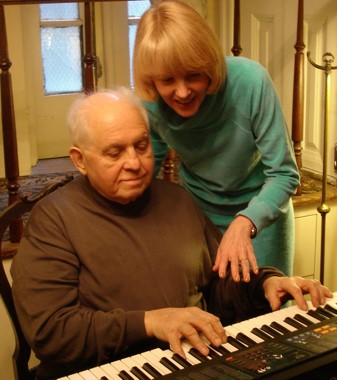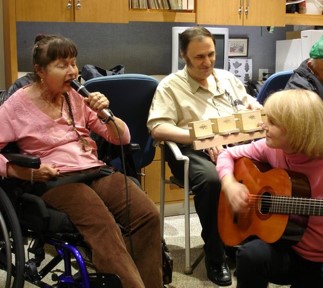Guest post by Christina Britton Conroy
Several years ago, I worked as a recreational therapist in an attractive nursing home. My workweek was Tuesday through Saturday, and I liked Saturdays best. They were quiet.

Every day, two hundred residents on four floors were fed, dressed, and medicated. But on Saturdays there were no podiatrists clipping toenails, psychiatrists adjusting psychotropic medications, medical doctors listening to hearts and lungs, dentists replacing lost dentures, frustrated social workers arguing on telephones, or nursing supervisors instructing new nurses’ aides.
There were adult visitors every day, but most Saturdays, the adults were accompanied by children. Quiet or noisy, they burst like merry beams of sunshine through heavy fog, bringing light and health through the sterile hallways.
On Saturdays, I was the only recreation staffer on duty and I attempted to entertain all two hundred patients. After lunch, a local minister came to the main day room and taught a Bible study class. I took other residents into the dining room to play BINGO.
One Saturday afternoon, a withdrawn little woman got into the elevator with the other residents. She shuffled on terry cloth slippers with jagged holes cut out for her bunions. Against her worn cotton smock, she clutched a teddy bear. Her thin gray hair lay against her cheeks, and her pale blue eyes held a vacant stare. She moved to the side of the elevator, and silently waited. Since she was always disoriented and never participated in activities, I was thrilled to see her join the group.
I gently touched her arm. “Mary, it’s so good to see you. Do you want to go Bible study or BINGO?” I asked.
Without looking up, she replied, “I want to go to Lithuania.”

After stifling a smile and apologizing that we couldn’t go to Lithuania that day, I was tempted to take her downstairs with the other residents. Good judgment won out. I led her out of the elevator and helped her shuffle back to her room. Mary did not have enough concentration to enjoy either Bible study or BINGO.
I knew she would sit still for two minutes, fidget, and walk out. Another already overworked staffer would have to leave his/her post, race after her, and take her back upstairs. I felt sorry I was only one person, and had to leave Mary while I collected the 40 other residents who wanted to play BINGO.
I also felt that Mary was all right. She knew what she wanted. She might have known she couldn’t really go to Lithuania. From time to time, she may have believed she was in Lithuania. Her mind had taken her away from the unpleasant reality of a nursing home into a pleasant dream-reality.
Another sweet, rosy-cheeked resident sat in her wheelchair next to scrubbed white walls under harsh florescent lights, smiled brightly, and invited me into her garden for tea. She described her flowers and the feel of spring sunshine. It was lovely.
Some clinicians believe that dementia/Alzheimer’s patients need constant reality orientation—that they need to be dragged out of their dream worlds, reminded who they are and where they are. Other clinicians practice Naomi Feil’s Validation Therapy, trusting that the mind will take a sad person to a place of happiness and peace—a better place than a nursing home.
 Christina Britton Conroy is the founder and Executive Director of Music Gives Life, bringing musical performing into the lives of senior citizens. A former senior center director, nursing home music therapist, and primary caregiver for two elderly family members, Christina has unique insights into the joys and frustrations shared by geriatric patients and their caregivers.
Christina Britton Conroy is the founder and Executive Director of Music Gives Life, bringing musical performing into the lives of senior citizens. A former senior center director, nursing home music therapist, and primary caregiver for two elderly family members, Christina has unique insights into the joys and frustrations shared by geriatric patients and their caregivers.
Book excerpt from: I Want to go to Lithuania or HOW TO HAVE FUN WITH YOUR AGING PARENTS.









This-little-book/Manual-is-Priceless.It-is-a-must-for-anyone-no-matter-what-their-age,caregiver-or-not.